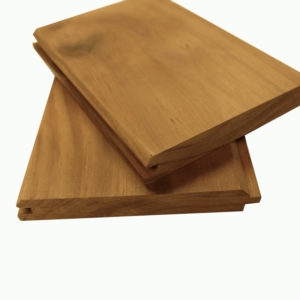The thermal modification process involves the heating of the Radiata Pine to a temperature of over 400o while at the same time protecting it with steam. The process is 100% natural – only heat and steam are used in the process, no chemicals are added. During the high heat process moisture is almost completely removed from the fiber which cooks the tannins, naturally occurring sugars and resins in the cells of the wood, permanently changing their structure. Steam is then added back to the fiber to retain its flexibility and workability.
Radiata Pine is grown on FSC certified plantations with a harvest cycle of 26 years. You don’t have to cut down a 400 year-old forest to get a totally natural product that has both a high resistance to decay and dimensional stability and a natural beauty.
THE RESULT
As a result of the thermal modification process several changes occur within the wood.
CARE AND ATTENTION
It is important to remember that Excalibur Wood is a natural wood product and grain, original color variances and other characteristics of wood are still present. Excalibur Wood will experience graying when exposed to UV rays like all other wood products, but UV inhibitors such as stain and coatings will prevent this graying.
The thermally modified process also eliminates tannin bleed normally found in Cedar.


